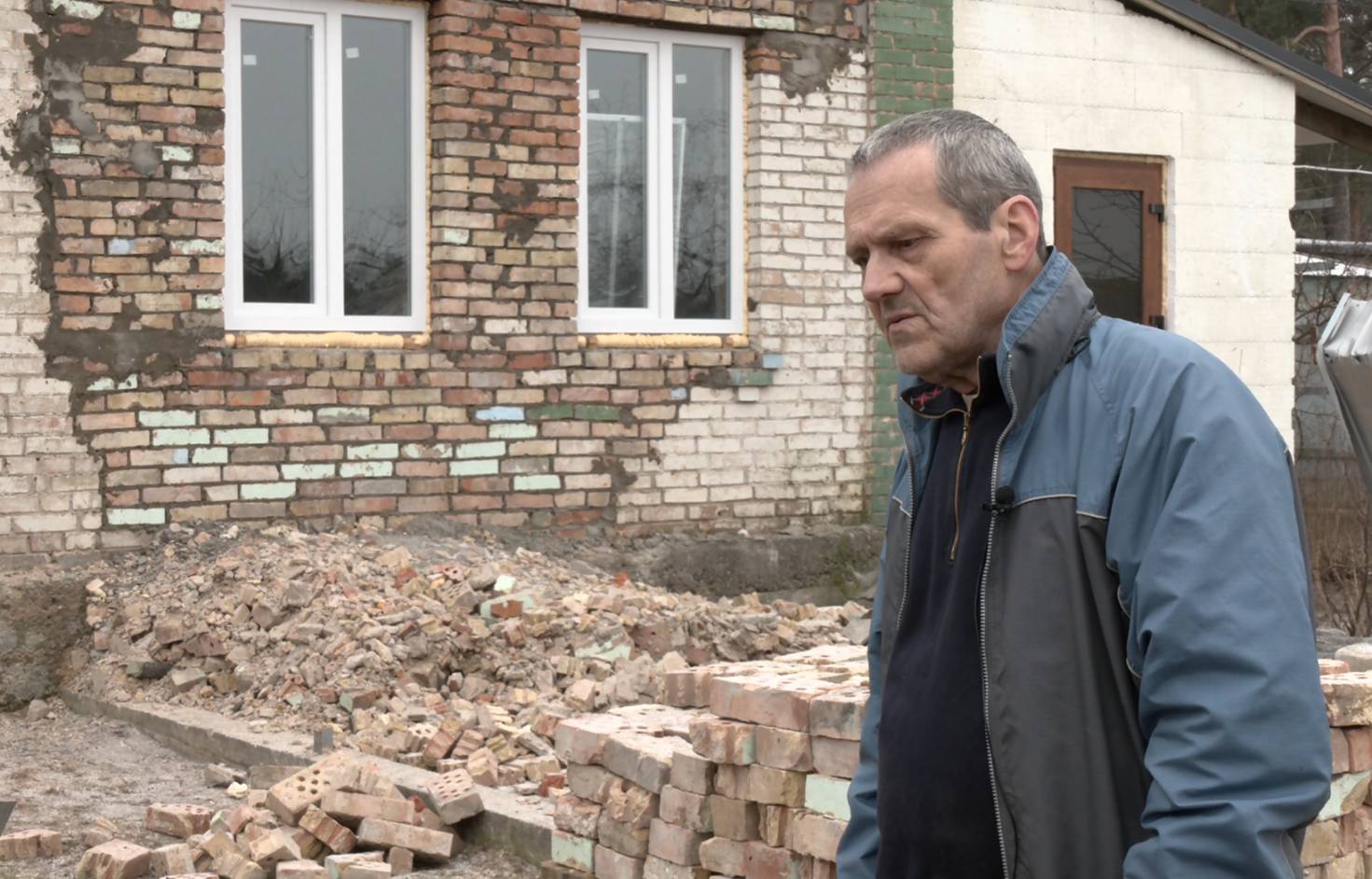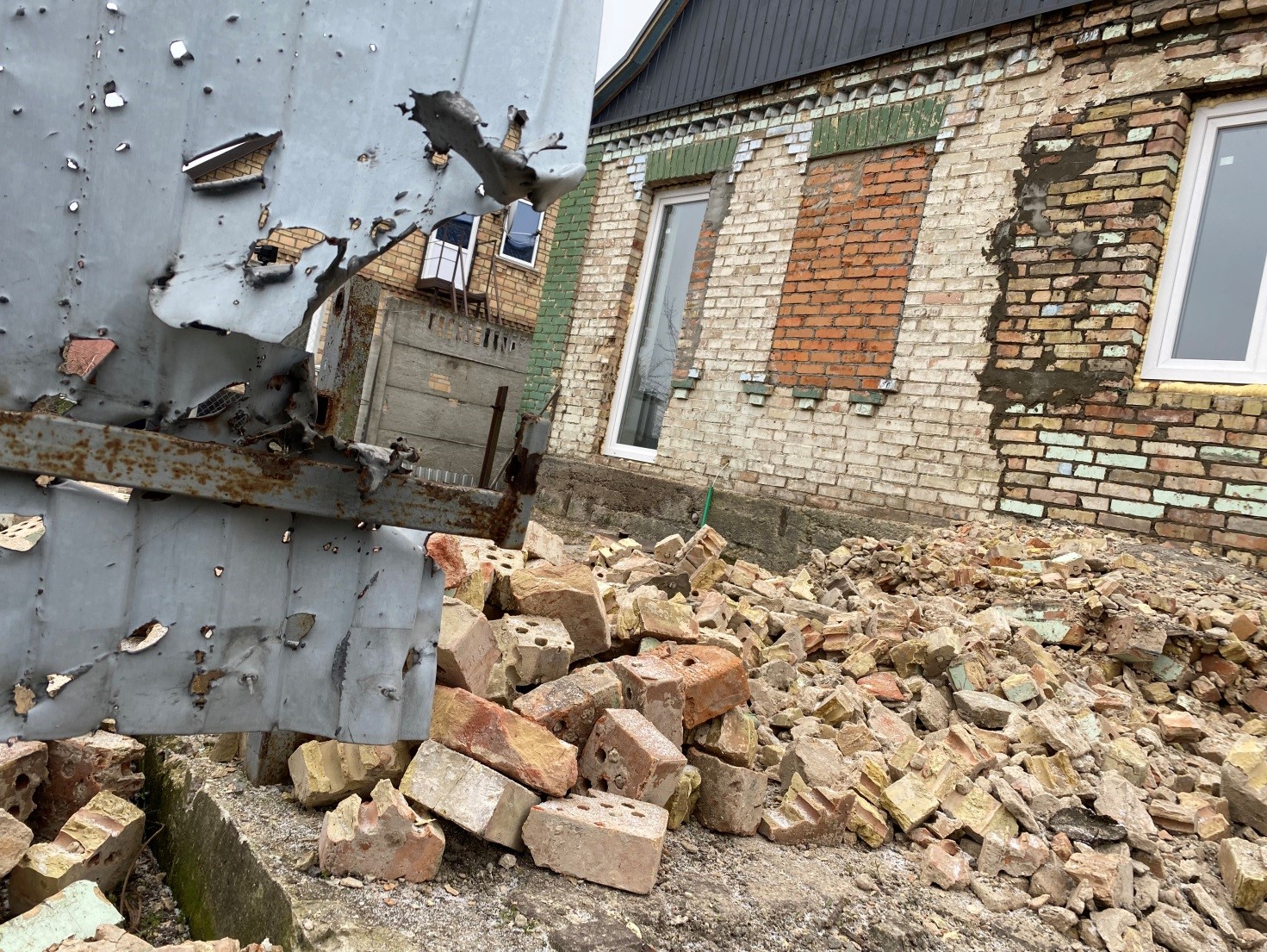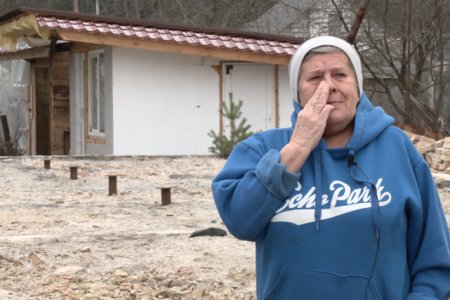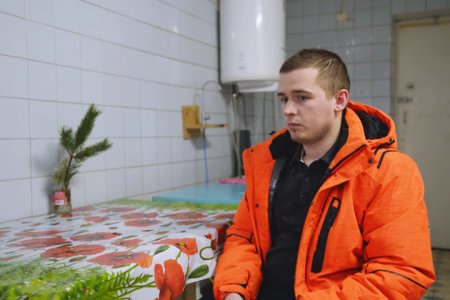My name is Valerii Zinchenko. I am a civil engineer. I did not reach retirement age but left due to disability. For seventeen years now, we have been living with my wife in Moshchun. We have a large family, eight children. Three are currently in the army near Bakhmut and Donetsk. My wife and the youngest daughter are in Germany. They were evacuated, but I did not leave due to unavoidable circumstances. I went separately and returned on the eve of 1 September to eliminate the consequences of the destruction.
— How was the first day of the war for you?
— I woke up, and everything was fine. Everyone was busy with the usual chores, but the radio soon announced hostilities had begun. We learned about the landing when a large group of helicopters flew from the eastern side. Now everyone knows that there were about thirty of them. They flew almost overhead. I went out into the street because I heard an inexplicable rumble and wanted to find out what was what. So I came out, and they were above.
I was surprised that they flew so low. You could see the pilots. But no one yet suspected how tragic everything would turn out. We were perplexed, but I did not believe there would be severe fighting like in Afghanistan or the Great Patriotic War. I thought it would work out somehow. But everything became apparent when they circled and fired several rounds. There were explosions, and then it became clear that real battles were going on [in Hostomel]. I realized it was only the beginning. And then it will get worse.
— What about your house?
— Their entire [Russian] armada flew overhead in the first ten days. Then the fires started in the dacha [summer cottage] cooperatives. And then the neighbor’s house burned down completely. It was before our eyes. Since my arms and legs do not obey after a stroke, I could not help in any way, but others helped, despite the shelling. They ran, trying to extinguish the fire. But it did not help. In the following days, hiding was necessary because the shelling and hits were constant. This is where the shell hit the wall — punched through. But God had mercy, and we were not physically hurt because we hid in time. For several days, in the dark, I saw their DRGs [Sabotage and reconnaissance groups] pass and destroy everything. We heard screams and explosions; mortars were working, and a battery stood in the forest. I hid in the cellar. I put on a few jackets to keep warm. And so I was saved.

— How did you manage to evacuate?
— I realized that I had to leave. The shelling was very intense — cassettes, heavy artillery, rocket systems. Most explosions were in the air, and shrapnel was above the ground. One day a neighbor came by car to see what was going on. It was calm at the moment. He offered to take me, and I agreed. He took me to Horenka, and I got to Kyiv from there. Fortunately, when the sabotage groups entered, I was no longer there. One man was found in the cellar. He was shot in the head.
— Before 24 February, did you suppose there would be a full-scale invasion?
— We didn’t believe it. Although, the go bag (mostly documents) was packed. Since I was alone, I packed everything to be ready at any moment. It was at the subconscious level. How all this would happen in reality, I could not imagine. There was some hope that everything would work out and end. But life has shown that orcs are orcs! [Orcs — Ukrainian nickname for the Russian army]
— Has your attitude towards the Russians changed?
— I’ll say it differently. What I told children and other people. In 1978 [during Soviet Union times], I served in the army. I also dealt with the Russians before and after the service. I want to say it’s their nature. They were always in such a state, in the evil state. You can’t take that away from them. I clearly remember that there were specific relations in the army at that time. For example, there was hazing. I defended both Azerbaijanis and Russians, and Armenians. There were different nuances.
I was tolerant towards everyone, but their nature was evil, in which they remained constant. They haven’t changed at all. On the contrary, they are getting worse. Therefore, I was surprised by people who treated this evil with tolerance. Some say: they are brothers… They never were our brothers. Once again, I became convinced that everything that was before was still there. This chauvinism, arrogance. Everything just opened up completely. As for whether to destroy this evil or not, it is clear. But how I don’t know. In my opinion, this empire must disappear if you take historical examples.

 The article was prepared by the Kharkiv Human Rights Protection Group with the support of the "
The article was prepared by the Kharkiv Human Rights Protection Group with the support of the "


